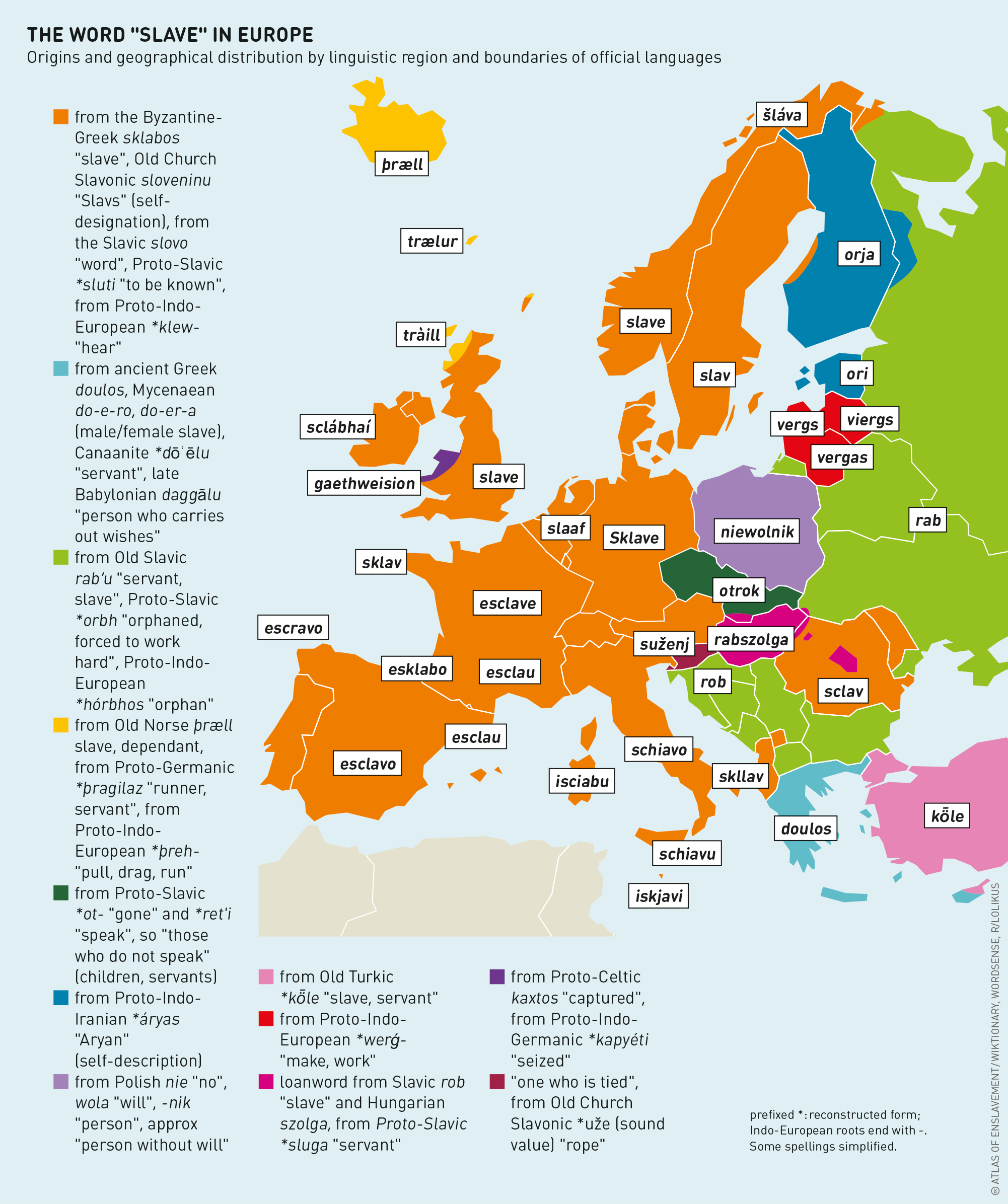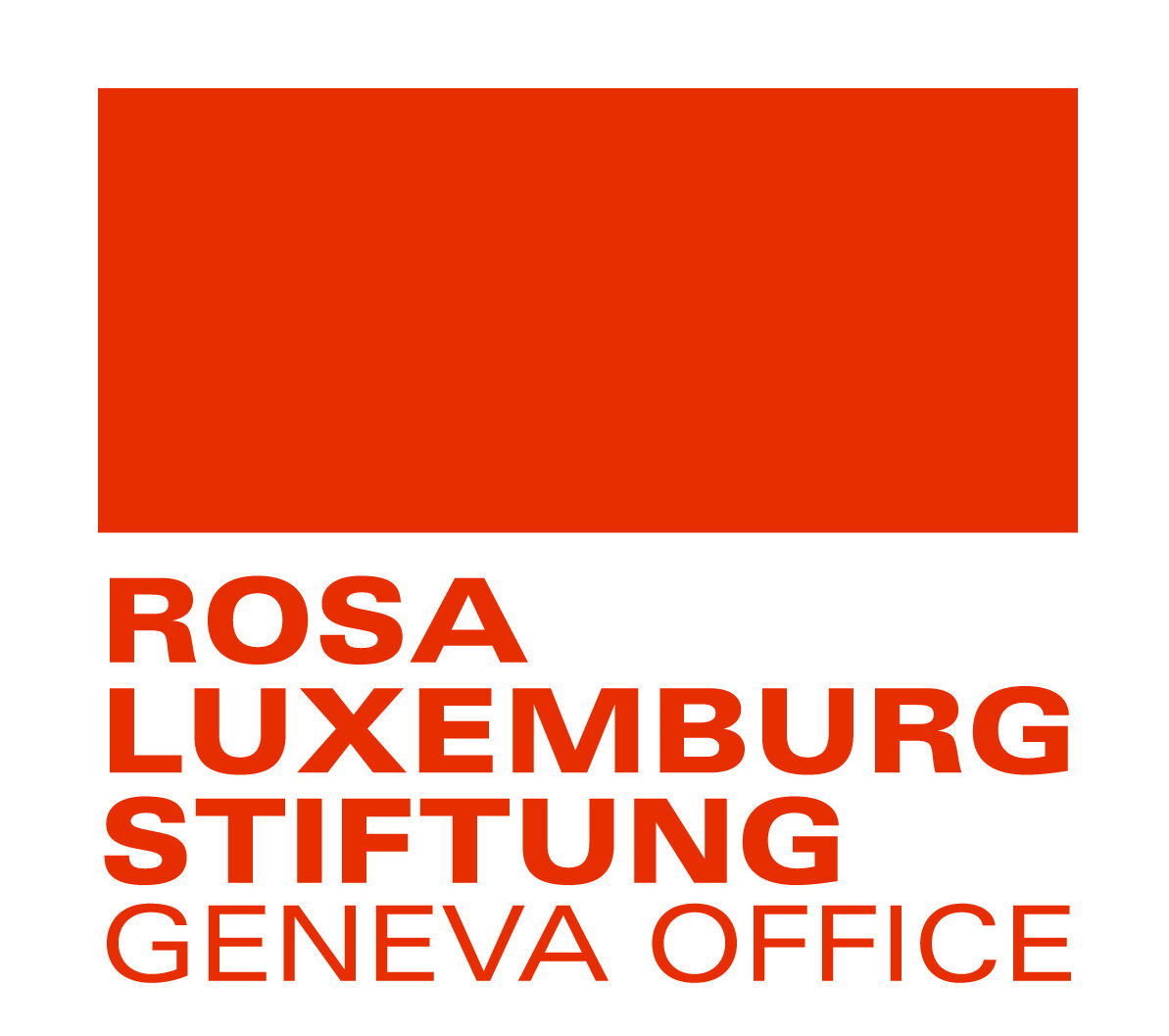The word “slave” is a very negative one: it has connotations of hard toil, compulsion, punishment and exploitation. In the past, warring peoples would capture their opponents and force them to work. The word for the captured opponents came to mean “slave”. The English word “slave” itself is one example.
A linguistic consequence of colonialism is that slavery has very similar names in much of the world. In the four major languages of the Americas, it is slavery in English, esclavitud in Spanish, escravidão in Portuguese, and esclavage in French. The same words are used in many parts of Africa, South Asia and Oceania where the colonial language has become the lingua franca.
Even more so in Europe. On this continent, the Latin terms for men and women who are property of other
people – sclavus, sclava – have seeped into many languages. But specialists in historical linguistics do not agree on the details of the word’s migration. Even the origin of the word is controversial. Does “slave” really come from “Slav”?
Most specialists agree that it does. It started in the Balkans. From about the year 500 onwards, Slavic tribes were making their presence increasingly known in the Danube provinces of the Eastern Roman Empire. They spoke a still rather uniform form of Proto-Slavic, a precursor of Old Church Slavonic, from which in turn a whole family of languages would develop. In 551, the scholar Jordanes, who was himself a native of the Balkans and who lived in the imperial capital of Constantinople (today’s Istanbul), made the first mention in a work written in Latin of the sclaveni on the Byzantine borders. A Byzantine-Greek form sklabos has survived from 580. These terms were based on a self-appellation – the word the Slavs used for themselves. In Old Church Slavonic, which was written down later, they called themselves sloveninu, or “Slavs”. The interpolated k has Greek origins.
That has nothing to do with enslavement. Nor is it free of conceit. Linguistic research, mainly from Slavic countries, traced sloveninu back to the word slava, which means “glory”. Later researchers came to regard the word slovo, “word, speech” in the sense of “those who speak intelligibly”, as the origin. But why should migrating Slavic tribes mark themselves out thusly from their neighbours or people who had already settled in the area? In recent decades, the linguistic discussion has gone back to the old slava, but now to a previous form of the word. It could come from a reconstructed – unattested, so marked with an asterisk – Proto-Slavic root *sluti, *slaviti, meaning “to be known, to be famous”. This element still occurs in the second parts of names such as Rastislav (“whose fame is increasing”) or Stanislav (“who achieves glory”). But the debate continues.

Whether they were the “famous” or those who “speak intelligibly”, large number of Slavs are said to have been captured in battles with armies from the Eastern Roman Empire and taken away as slaves. From the 9th century on, the name of the people and the legal status became mixed. The name of the Slavs may have been given to slaves as a result of the long-distance slave trade. According to this theory, this trade increased significantly in the early Middle Ages, when large numbers of Slavs were “on the market”. The ethnic meaning of slavus, slava gradually disappeared from the words sclavus, sclava. The Arabic loan word saqaliba, which still meant “Slavic slave” in the Levant, came to mean simply “foreign slave” in the Caliphate of Cordoba in what is now Spain.
In the High Middle Ages, the word sclavus had become established in large parts of Europe. Servus, the previously common word for slave or retainer, gave up the severest part of its meaning to sclavus, and shifted to softer meanings: servant, serve, and servus (“at your service” and “goodbye” in southern Germany and Austria). The word “serf” still retains some of the original meaning of servus.
It is not surprising that the new word did not spread in the Slavic parts of Europe, even though slavery also existed there. Here, the people concerned were mostly referred to with the Old Slavic term rabu or similar, and their hard work, servitude or bondage was called rabota. The word “robot” is related to this. The root *rab- or *rob- alludes to the origin of child labour. This is because the underlying Indo-European root *orbh originally meant “orphaned, orphan, forced by necessity to work hard”. Indeed, the word “orphan” comes from this root. The first syllable of the German word Arbeit, which originally meant “toil, plague, effort”, is also based on *orbh.
The transformation of an ethnic description into a word for “slave” may not be unique in Europe. In the Balto-Finnic languages, which include Finnish, Estonian and Karelian, orjus, orjuus and similar words carry the meaning of “slave, servant, beggar”. The word, most specialists agree, comes from the Indo-Aryan *áryas, meaning Aryan. Around 4,000 years ago, the linguistic area of the Indo-Aryan groups stretched across the Central Asia steppes between the Caspian Sea and the Urals. It is possible that the Uralic-speaking groups who lived there met enslaved Aryans, or themselves enslaved them, and adopted their name into their vocabulary as orja. In any case, Balto-Finnic and Sami languages later developed from Uralic. They took the word with them as their migration took them to Finland and northern Scandinavia. The Indo-Iranian Aryans, on the other hand, moved southwards.
Language specialists also count as part of the word family of *áryas and orja a term in Lule Sami, a language spoken mainly in Sweden with between 650 and 1,100 speakers. This term may reveal a shadow of the old relationships between the Urals and the Russian steppes: årjan in Lule Sami means “far to the south”.
